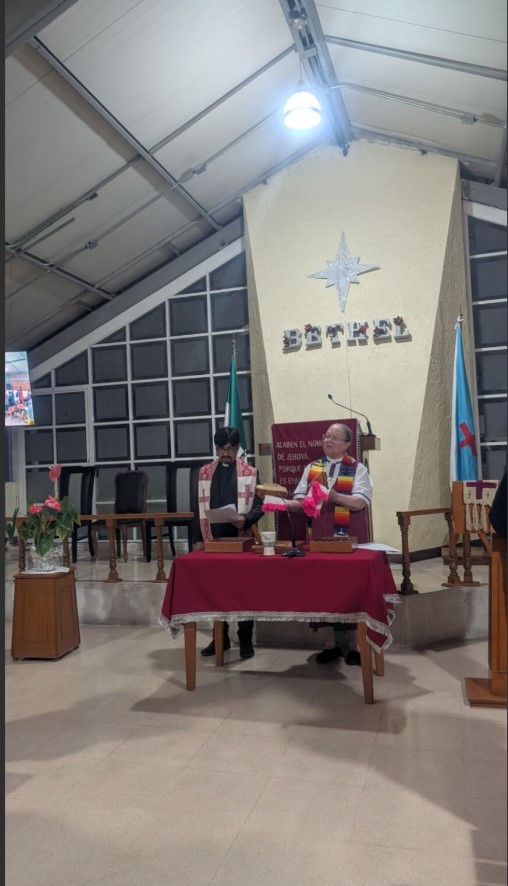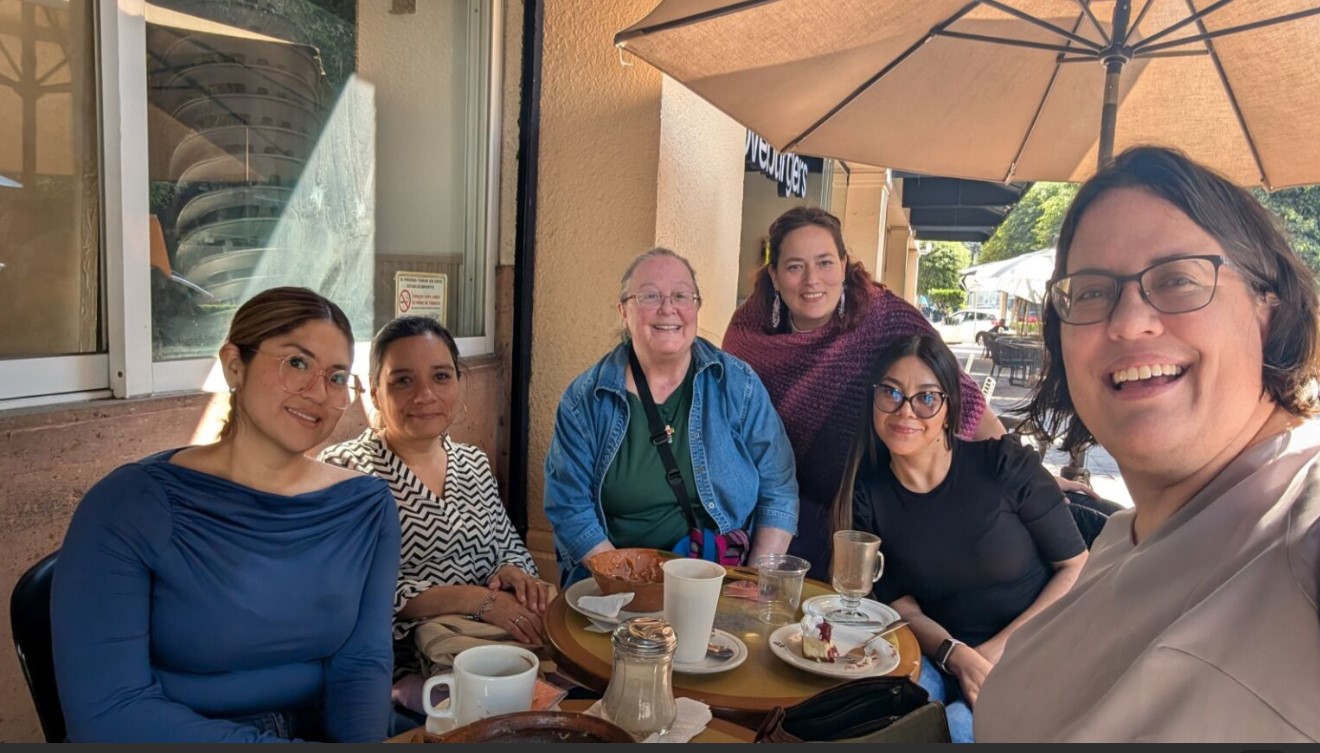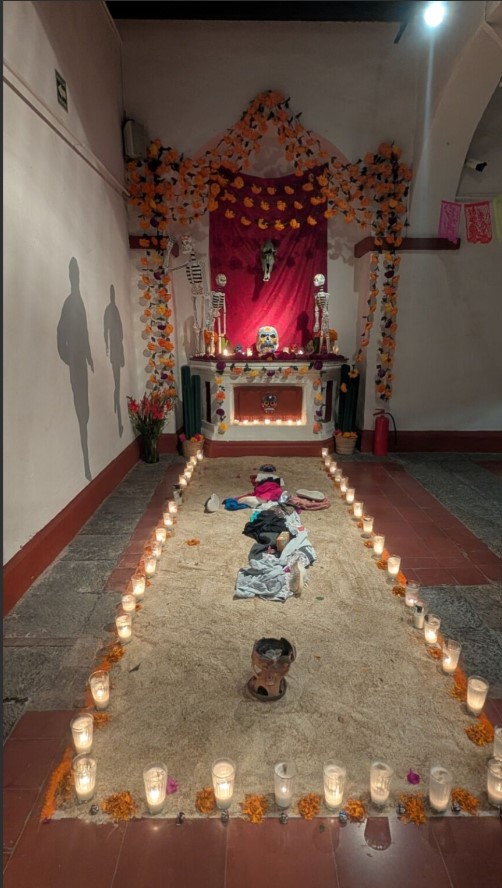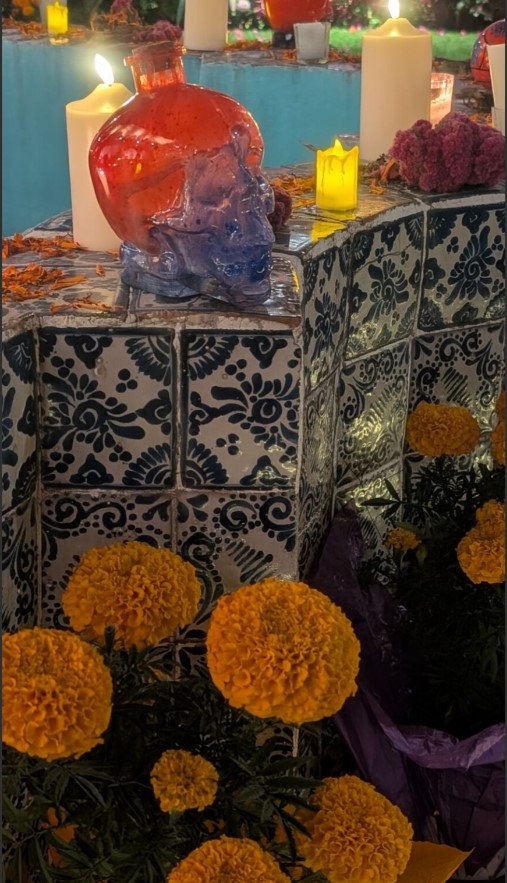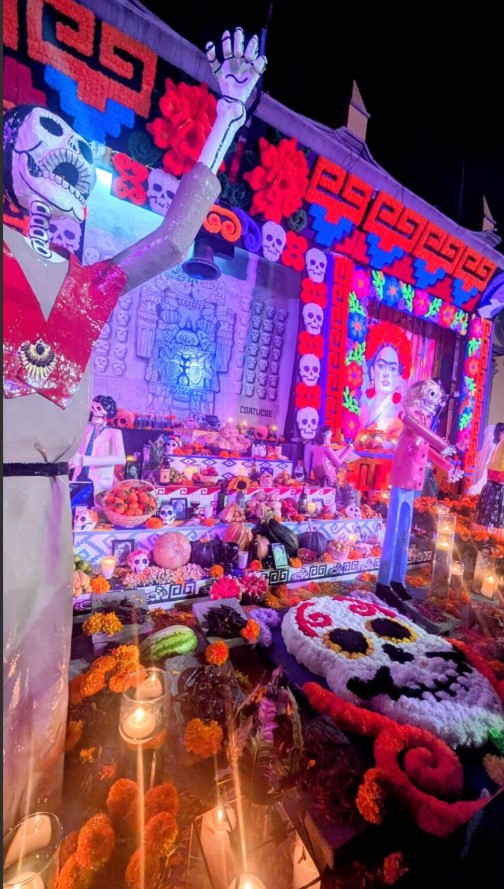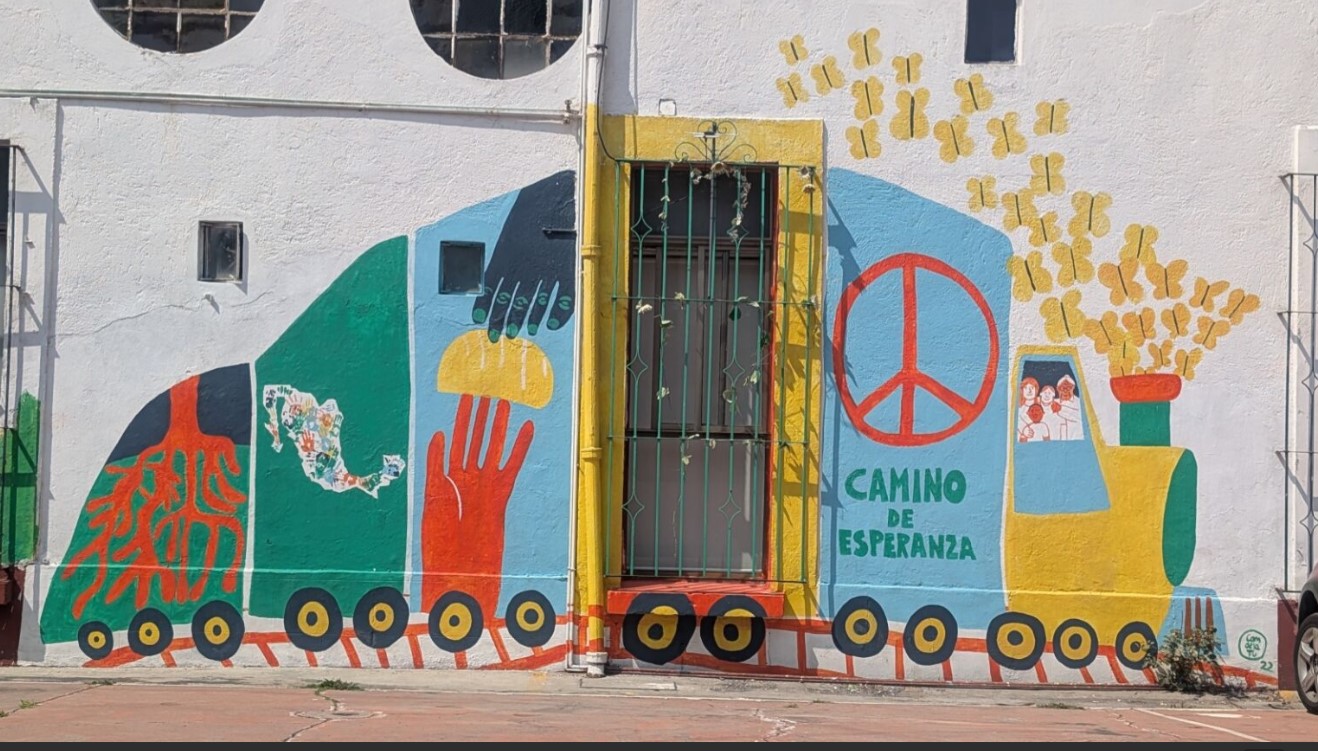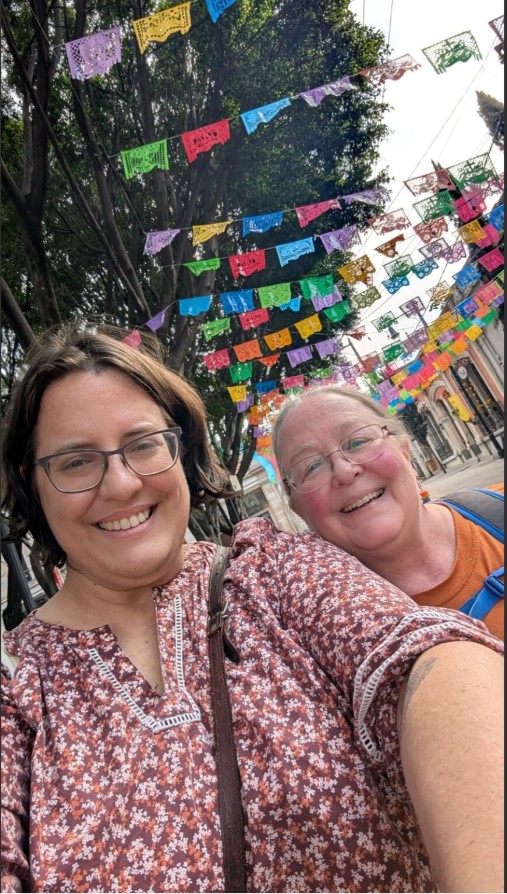div id=”google_translate_element”>
A letter from Dori Hjalmarson, mission co-worker serving in Honduras
Winter 2024
Write to Dori Hjalmarson
Individuals: Give online to E132192 in honor of Dori Hjalmarson’s ministry
Congregations: Give to D500115 in honor of Dori Hjalmarson’s ministry
Churches are asked to send donations through your congregation’s normal receiving site (this is usually your presbytery)
Subscribe to my co-worker letters
Dear friends,
As I walked through the gloam of the cultural center’s garden one evening the last week of October, marveling at the elaborate Día de los Muertos decorations, I came upon a fountain surrounded by coffins, and I got a little jolt as I looked inside and saw myself reflected in a mirror.
It was a few days after Reformation Day, which I am glad to have celebrated together with my aunt and mission co-worker colleague Leslie Vogel and our partners in Mexico City, the Mexican Communion of Reformed and Presbyterian Churches. We had already spent a few days doing our own Protestant reflection on the generations who had come before and, in our own way, invited the past into the present, and dreamed about the future.
The Mexican Communion is young, only 12 years old, and its leaders had joked with us about the denomination entering its tempestuous adolescence. Membership and money are perpetual worries. Young pastors have a passion and vision for ministry but often face reticent and complacent congregations who cling to “the way things used to be.” Congregations that were growing in numbers and vitality before the COVID-19 pandemic seem to have fallen into an abyss—“We never came back from Zoom church,” more than one leader told us. Yet some communities continue online or in secular spaces and seem to have formed their own ways of being “church” without four walls and a regular Sunday meeting.Sometimes it feels as though we are staring at ourselves in our own coffins. But there is always the hope of reformation and resurrection. Leslie and I visited a lodging house in Mexico City, a secular program funded by the United Nations High Commission for Refugees and run by a Lutheran pastor originally from El Salvador. The Rev. Miguel Solórzano fervently explained the philosophy of the lodging program for people migrating through Mexico in many cases waiting for months or years for appointments to request asylum or refuge in the United States.
“Human mobility is not a phenomenon or a problem,” Pastor Miguel told us. Human mobility has been the human condition since the beginning of time, and it is our human institutions—geopolitical states—that limit and punish migration. Pastor Miguel insisted that the lodging program not be called a “shelter”—a word that in both Spanish and English evokes an overcrowded place of anonymity and scarcity. The lodging house seeks to resurrect a sense of family autonomy and communal unity by establishing healthy boundaries and providing a space of dignity and respect. And it is not a church, but many of its staff and volunteers—a new college graduate from the U.S., a Presbyterian pastor, and graduate student in her 30s from Mexico, a Lutheran pastor from El Salvador—are passionately enacting their call to be reformers and resurrectors in the world.
As we reflect on this time of remembrance of generations past, together with our anxious unknown future, we wonder what walls we are imagining to contain our reflections: The walls of a coffin, or the walls of a church?
In Christ,
The Rev. Dori Hjalmarson and the Rev. Leslie Vogel
![]() You may freely reuse and distribute this article in its entirety for non-commercial purposes in any medium. Please include author attribution, photography credits, and a link to the original article. This work is licensed under a Creative Commons Attribution-NonCommercial-NoDeratives 4.0 International License.
You may freely reuse and distribute this article in its entirety for non-commercial purposes in any medium. Please include author attribution, photography credits, and a link to the original article. This work is licensed under a Creative Commons Attribution-NonCommercial-NoDeratives 4.0 International License.
